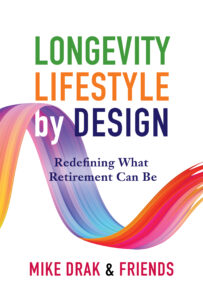I never thought that I would fail at retirement and end up in Retirement Hell. But I did.
You see, I spent my entire career – almost forty years- in the banking industry. While there, I learned a lot about money and investing and, over the years, I helped thousands of clients save for their own retirement. Furthermore, my wife is a financial advisor. And yet despite all that knowledge and expertise, I still managed to fail miserably at retirement.
Looking back, I now realize that many of my beliefs about retirement were wrong because they were all linked to the financial aspects of retirement. What I know for sure now is you just don’t fall into a happy retirement because you have a lot of money. You need financial security, of course. But designing a satisfying life takes thought, time and planning on many more levels. You need to know your needs and values, and what makes you happy, and then you have to find ways to satisfy these aspirations on a regular basis. Thinking that you will figure things out when you get there doesn’t work.
Traditional retirement planning has programmed us to think it’s all about the money, but it’s not. In conventional planning, the focus is always on the number: how much money you are going to need to retire. Few financial advisors/planners talk about the other important stuff: how you are going to replace your work identity, how you are going to stay relevant and connected, and how you are going to keep mentally sharp and physically fit, among other things.
Believe it or not most retirements fail for non-financial reasons rather than financial ones. I don’t want that to happen to you so for the past year and a half I along with five of my friends have been working on a new book — Longevity Lifestyle By Design — to help people design a life they would be happy to wake up too.
Retiring from work is simple. Figuring out what you are going to do with the rest of your life is the hard part.
Our mission is to help improve the transition to retirement and help retirees to design a life that they look forward to living everyday.
We know that many people are going to struggle with the non financial challenges that can often accompany retirement. It happened to me, my colleagues and through my discussions with other retirees discovered that it also happened to many of them as well. Continue Reading…







